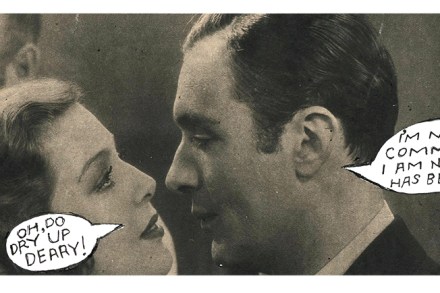I’m a Tory trapped in a Labour voter’s body
I’ve been on tour around the UK with my stage show about identity called A Show All About You. In Edinburgh it coincided with the last weekend of my retrospective at the Royal Scottish Academy. I dropped in for an hour and sat on a bench so people could come and sit next to me to chat. Someone said on viewing my exhibition, which deals with many social issues, that they could not tell which way I vote. This pleased me. In my stage show I talk a lot about the tense relationship between our conscious intellect and our embodied intuition. I describe myself as a Tory voter trapped in






















